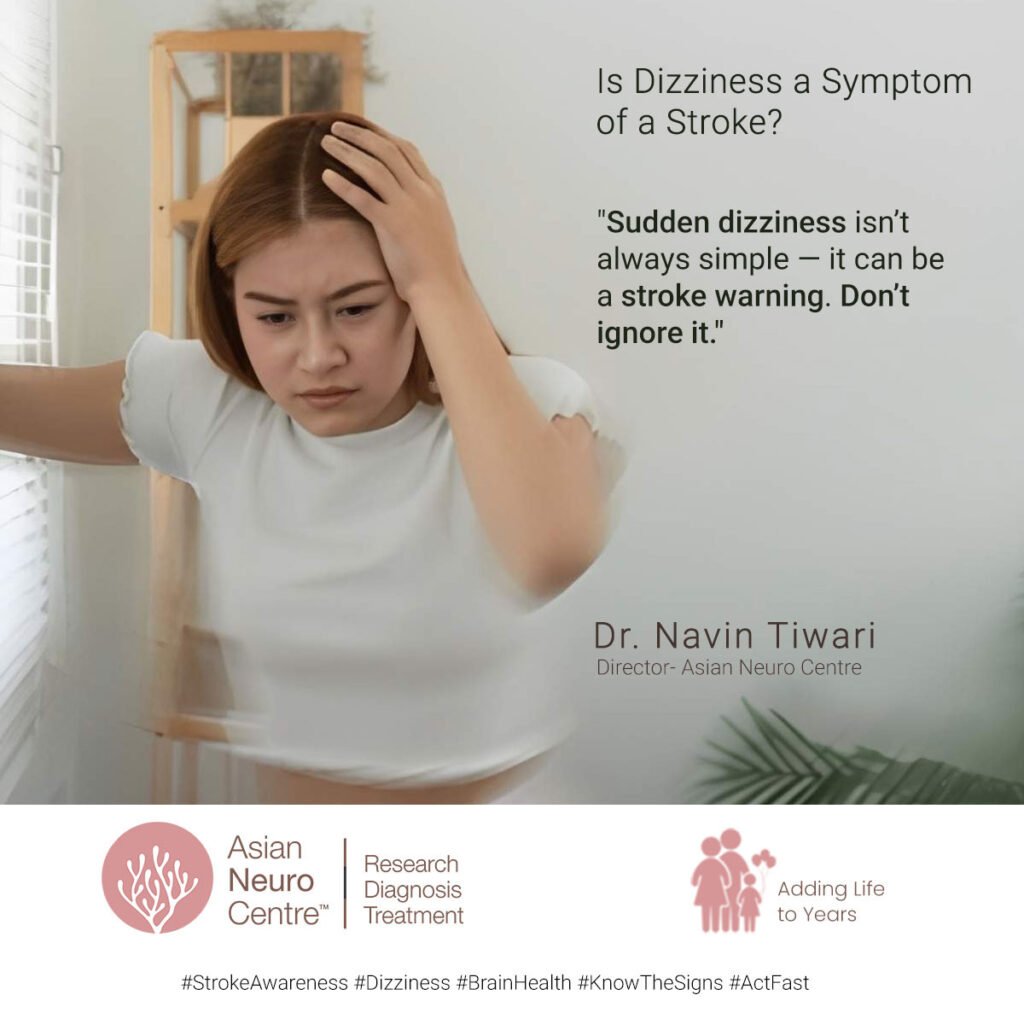- Have any questions?
- 911 12345 29
- info@asianneurocentre.com
Is Dizziness a Symptom of a Stroke?
Which Deficiency May Cause Burning in the Feet?
November 13, 2025When to Worry About Vertigo?
December 3, 2025Is Dizziness a Symptom of a Stroke?
- Balance problems stroke
- best neurologist for dizziness stroke symptoms near me
- brain blood flow issue stroke emergency symptoms
- Brain stroke symptoms
- Can dizziness be a sign of stroke
- Can dizziness be the only symptom of a stroke?
- Can dizziness happen without other stroke symptoms
- Difference between dizziness and stroke symptoms
- Dizziness
- Dizziness and stroke
- dizziness and stroke treatment Indore
- dizziness stroke doctor in Indore
- Do you go dizzy before a stroke?
- Does dizziness from stroke go away
- Does dizziness mean a stroke is coming?
- Early signs of stroke dizziness Sudden dizziness stroke
- emergency stroke symptoms hospital Indore
- How fast does dizziness happen during a stroke?
- How to know if dizziness is related to stroke
- Is dizziness a sign of stroke or heart attack
- Is dizziness a symptom of a stroke
- Is dizziness alone a sign of stroke
- Is sudden dizziness a sign of a mini stroke
- Lightheadedness stroke
- Mini stroke dizziness
- neurological dizziness
- One month before stroke warning signs
- Should I go to the doctor for dizziness stroke symptoms?
- Signs of a mild stroke in a woman
- Signs of a stroke before it happens
- Stroke red flags
- stroke risk factors
- stroke specialist for dizziness in Indore
- Stroke symptoms dizziness
- Stroke symptoms in adults with dizziness
- Stroke vs vertigo
- Stroke warning signs
- sudden loss of balance spinning sensation
- TIA dizziness
- Unusual stroke symptoms
- Vertigo and stroke
- vertigo vs stroke differences
- What are pre-stroke symptoms?
- What are the 10 causes of a stroke
- What are the 4 silent signs of a stroke
- What does stroke dizziness feel like?
- What type of dizziness indicates a stroke
- When to worry about dizziness and stroke
- क्या आपको स्ट्रोक से पहले चक्कर आते हैं?
- क्या स्ट्रोक से चक्कर आना दूर हो जाता है?
What Is a Stroke?
A stroke is a serious medical emergency that occurs when the blood supply to a part of the brain is suddenly interrupted. This interruption can happen in two main ways: a blocked blood vessel (ischemic stroke) or a burst blood vessel (hemorrhagic stroke).
In both cases, brain cells are deprived of oxygen and nutrients, leading to rapid damage or death of the affected cells. The severity of a stroke depends on how quickly treatment is provided and which part of the brain is impacted.
Common symptoms of stroke include sudden weakness or numbness in the face, arm, or leg—especially on one side of the body. People may also experience trouble speaking or understanding speech, difficulty walking, sudden vision problems, or severe headaches.
Since the brain controls all bodily functions, any disruption in its blood flow can lead to a wide range of symptoms. Recognizing these signs early and seeking immediate medical attention can significantly improve recovery outcomes.
Medical experts often use the term “time is brain” to emphasize the importance of acting quickly.

Is Dizziness a Symptom of a Stroke?
Yes, dizziness can be a symptom of a stroke, but it is usually accompanied by other neurological signs. Sudden dizziness becomes more concerning when it appears abruptly and without an obvious cause, such as dehydration or standing up too quickly.
Stroke-related dizziness is often linked to a type of stroke involving the brainstem or cerebellum, the areas responsible for balance and coordination.
In such cases, dizziness may feel like vertigo—where the room seems to spin—or like a loss of balance and coordination. This type of dizziness is more intense and sudden than ordinary lightheadedness. It may be accompanied by other stroke warning signs such as:
- Sudden difficulty walking or loss of balance.
- Double vision or trouble seeing.
- Sudden nausea or vomiting.
- Weakness or numbness on one side of the body.
- Trouble speaking, slurred speech, or confusion.
- A severe, unexplained headache.
It’s important to distinguish simple dizziness from stroke-related dizziness. For example, dizziness caused by issues in the inner ear is common and usually not dangerous.
However, if dizziness comes suddenly, occurs without warning, or is accompanied by other symptoms like weakness, speech difficulty, or vision changes, it could indicate a stroke.
The FAST tool is commonly used to recognize major stroke symptoms:
- F – Face drooping
- A – Arm weakness
- S – Speech difficulty
- T – Time to call emergency services
Although dizziness is not specifically part of the FAST checklist, it is still considered a serious warning sign when paired with other symptoms. If there is ever any doubt, it is safer to seek emergency medical help immediately.
Early diagnosis and treatment, such as clot-busting medications for ischemic stroke, can significantly improve the chances of recovery.
Conclusion
Dizziness can indeed be a symptom of a stroke, especially when the stroke affects areas of the brain responsible for balance and coordination.
While dizziness alone is not always a sign of stroke, sudden-onset dizziness—particularly when combined with other symptoms like trouble walking, blurred vision, weakness, or speech problems—should be treated as a medical emergency.
Recognizing the warning signs and acting quickly can save lives and reduce long-term disability. If you or someone else experiences sudden, unexplained dizziness along with any neurological symptoms, seek immediate medical attention.
Dr. Navin Tiwari
Consulting Neurologist
